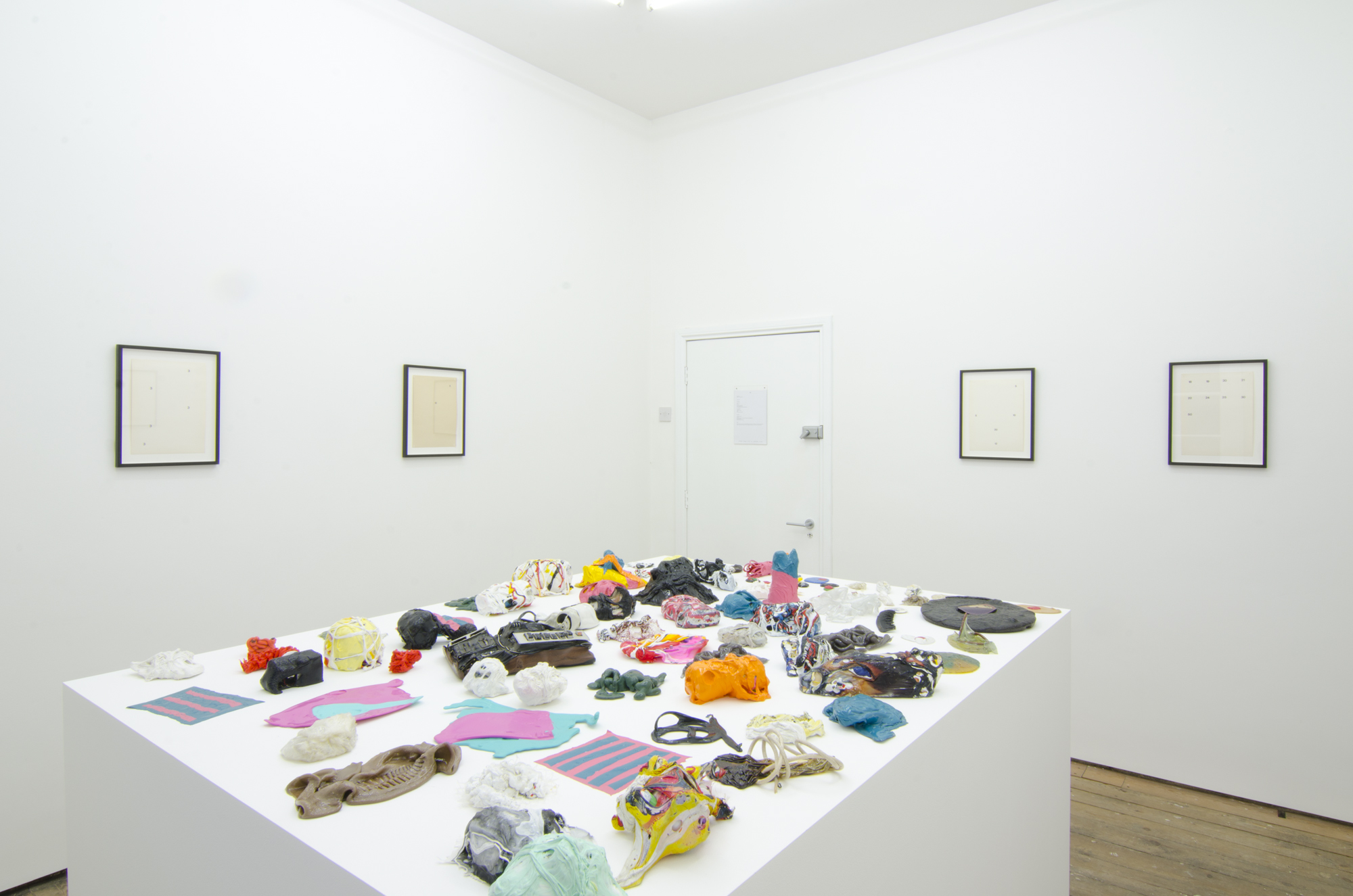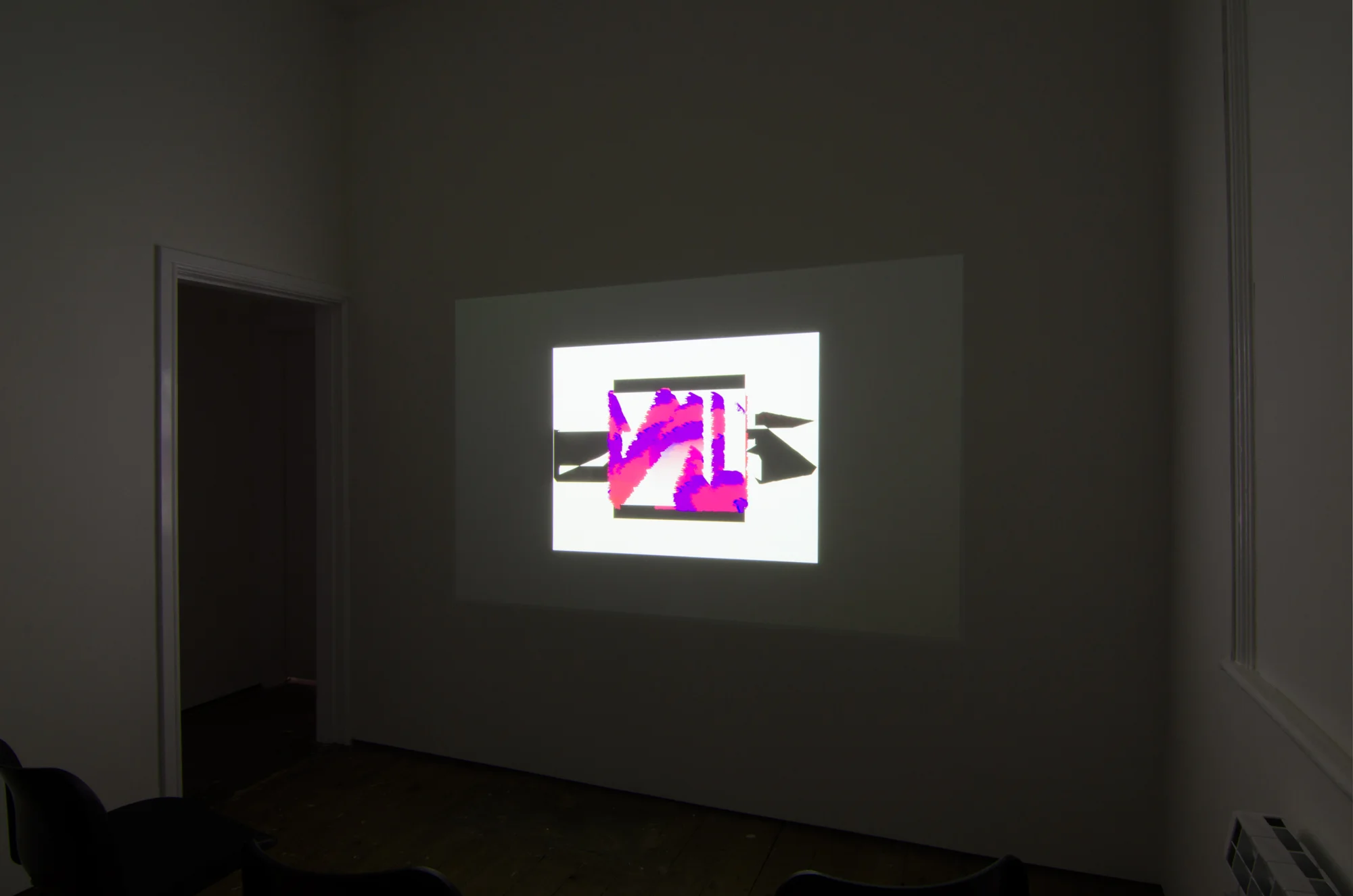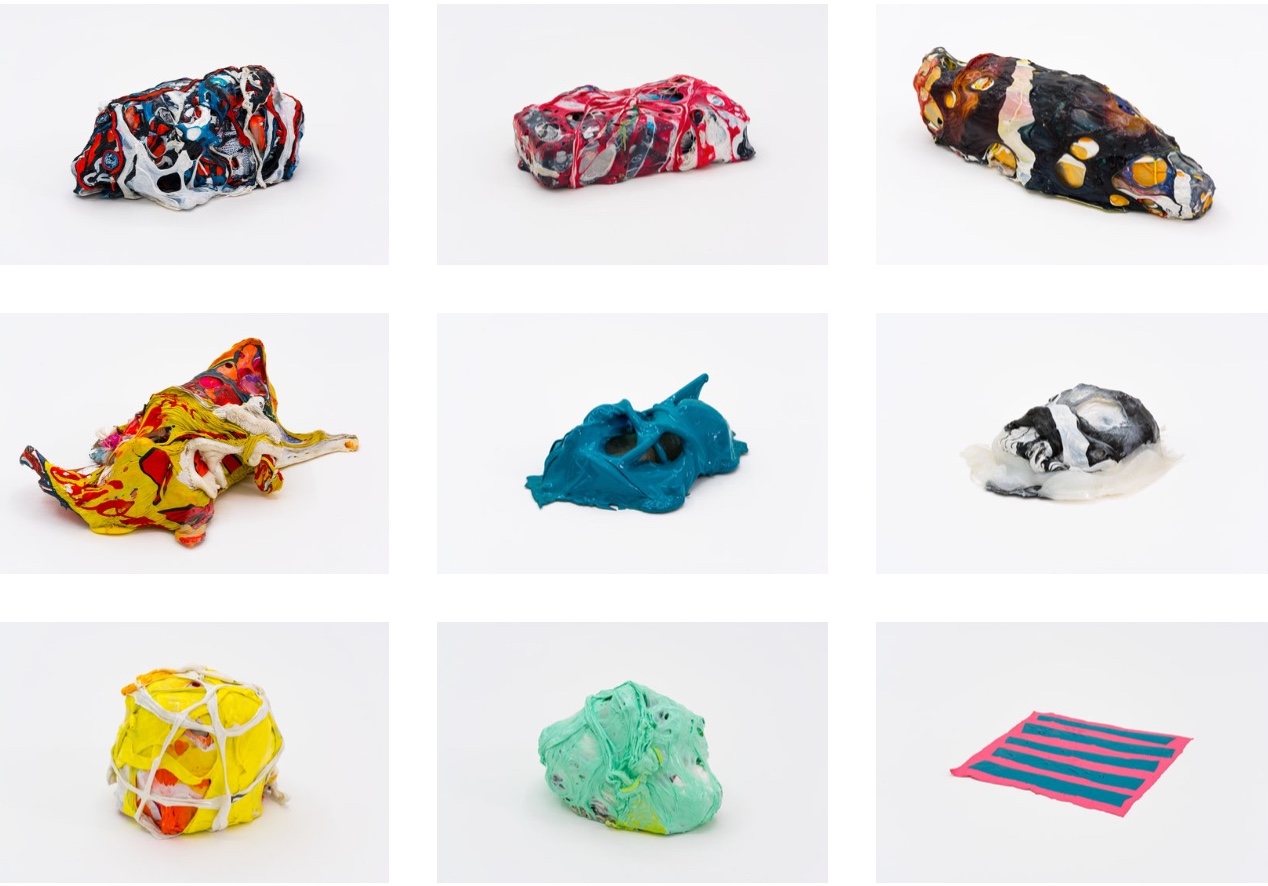Article on The Quietus by Robert Barry.
Art Monthly review by Tom Emery.
The Wire review by Ilia Rogatchevski.
Performance foreword by Byron Coley.
Remko Scha
March 31st - June 4th 2017
Exhibition preview: Thursday 30th March 6-9pm
Performance at Nottingham Contemporary: FREE - Saturday 3rd June (Doors 7pm, Performance 7.30-9pm) - Register via here.
Born in Eindhoven, Netherlands, Remko Scha (1945 – 2015) was an Amsterdam based artist, scientist, composer and experimental musician who later became a professor in computational linguistics at the University of Amsterdam. A true polymath, Scha’s practice was equal parts scientific & artistic experimentation that involved many and whose influence is acknowledged by several of the most noteworthy musicians, artists and performers of the past 50 years.
Whilst studying his physics degree in Eindhoven in the mid-1960’s, Scha founded The New Electric Chamber Music Ensemble, a group of musicians renowned for improvised performances involving traditional instruments alongside items such as EEG equipment and household appliances. In the early 1970’s Scha worked for the electronics company Philips, developing complex 'question-answering' systems that became the first of several scientific achievements for Scha, and Philips’ first artificial intelligence advancement.
Later, together with Paul Panhuysen, Scha founded Het Apollohuis in Eindhoven in 1980, an alternative space for music and visual art. The former cigar factory played host to artists, musicians and speakers including Glenn Branca Band, Terry Fox, Ellen Fullman, Dan Graham, Artist Placement Group, This Heat and Robert Longo.
During this time, Scha also began to experiment with methods of making music void of direct human interaction. Making their debut supporting Bauhaus in Eindhoven, 'The Machines' represented a band of electric guitars suspended from wires accompanied by mechanical devices that would 'SHAKE', 'THROB', 'THRASH', 'SWITCH', 'STROKE', 'SWEEP', 'SLAM' and 'BRUSH' rope against the guitar strings. These aforementioned guitar-actions became the track-listing on the 'Machine Guitars' LP that was subsequently released in 1982, followed by an international tour with performances at A's, New York; The Kitchen, New York; Stedelijk Museum, Amsterdam; Metropol, Berlin and the ICA, London. Repeat visits to tour and record in New York led music critic Byron Coley to describe Machine Guitars as one of "the definitive NYC guitar work[s]" (The Wire, 231). Musicians including Thurston Moore, 23 Skidoo & Glenn Branca have all cited the influence and impact that The Machines and Scha had on their own respective experimentation and progression.
In the early 1990’s Scha formed the Institute of Artificial Art Amsterdam, continuing his quest for developing automated systems of art and wider cultural production. With a large team of collaborators the Institute completed several visual art, design and architectural projects.
Between 1988 and 2010 Scha worked as a Professor of Computational Linguistics at the University of Amsterdam, Netherlands. Over the 20+ years he worked there he made key contributions to his field including the founding of 'Data Orientated Parsing' (DOP), a hugely important paradigm in computational linguistics. Scha became renowned for being hugely supportive of his fellow researchers and students, as well as the many artists and musicians that he worked with across this time and beyond.
The exhibition at TG and performance at Nottingham Contemporary will encapsulate 4 significant bodies of work, some of which have never been on public display before. Firstly a set of 19 works on paper entitled 'Album Pages' (1967) that consist of Letraset numbers applied to A4 sheets of paper, with hand-drawn pencil registration marks. These meticulous works that were initiated at the very beginning of Scha's career (aged 22) demonstrate an early attention to numbers, repetition and patterns and suggest a primitive approach to computer programming that Scha was later to take forwards. A publication containing the full series will be produced on the occasion of the exhibition, published by TG and designed by artist and designer Blue Firth.
The second body of work is a series of plastic sculptures entitled 'Plastic Meltdowns' (1962-1992). Scha produced these small sculptures by placing into his home oven assemblages of found plastic objects and materials that would appear 30 minutes later as semi-melted forms. Made over a 30 year period, this is the first time these works have been exhibited.
The final work in the exhibition is an early version of 'Artificial', an aleatoric computer programme capable of creating unique, never repeating, self-generating video imagery that can output to a video projector, screen or a printer.
A performance in partnership with Nottingham Contemporary will conclude the exhibition. The Machines, now operated by guest composers and performers, will feature the original guitars and will be their first UK performance since a concert at the ICA, London in 1982. The current incumbent of The Machines is renowned Dutch musician and composer Samuel Vriezen, an ex-student and friend of Scha’s who shared a similar interest in mathematics and music, and continues to take forwards Scha's and The Machines' legacy.
This exhibition, performance and publication is of course dedicated to Remko Scha who sadly died in the Autumn of 2015. TG director Tom Godfrey was fortunate to meet Remko just prior to his death and spend a sunny afternoon in Amsterdam going through his rich archive of works. TG would like to offer a special thanks to Remko's wife, author Josien Laurier who has helped at every stage to realise this display of work by one of the most important figures of European experimental art practice of the past 50 years.
The performance at Nottingham Contemporary forms part of Object Performance, a series of commissions presented by TG & Primary, combining residency and exhibition formats, alongside new performances. TG will be subsequently presenting two performances by Jan Vorisek and Andrea Neumann & Anna Susanna Woof.
Remko Scha, Plastic Meltdowns, 1962-1992, plastic, dimensions variable.
Remko Scha, Album Pages (1-19), 1967, Letraset and pencil on paper, 32 x 23 cm.
Remko Scha, artificial.pc version 48, 1995-1997, Automatic image generation program. Pascal/assembly IBM486/MSDOS.
Link to The Machines performance documentation here.
Link to studio documentation of Plastic Meltdown series here.





























